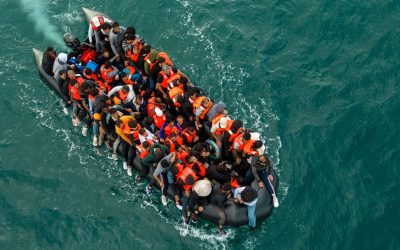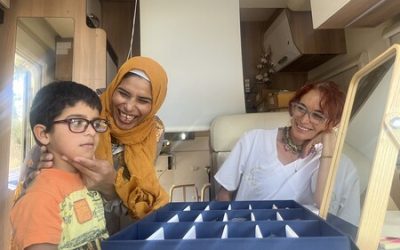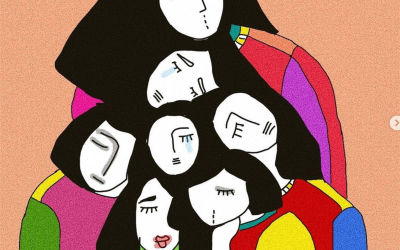Life for refugees in Greece is incredibly challenging. The journey to safety is dangerous and often life-threatening. Many are forced to rely on smugglers to navigate irregular, perilous border crossings from Turkey. Whether crossing the Evros River or the Aegean Sea, people risk everything. Tragically, over 30,000 people have died trying to cross the Mediterranean in search of safety.
For those who survive, their ordeal is far from over. Upon reaching Greece, many spend days in desolate areas known as the “jungle,” without food or water, anxiously waiting for the authorities to locate them. Everyone fears being pushed back into Turkish waters, an illegal practice (denied by Greece) that has pushed thousands back into danger since 2020 and before.
Those not pushed back are taken to Greece’s Closed Controlled Access Centres (CCACs), which feel more like prisons than refuges. Surrounded by high walls and with strict controls, these camps offer little comfort. Families are crammed into decaying containers, suffering infestations of rodents and insects. Malnutrition is common, and medical care is scarce, leaving wounds untreated and suffering prolonged.
Greece’s location as a gateway into Europe has placed an immense burden on the country. While EU funds support refugee camps, the Greek government offers limited support to its own people when faced with hardships, and this has, in part, led to the cutbacks in aid for refugees over the years. Food provisions are meagre, cash cards have been scaled back, housing programs have been discontinued and much more.
This is where our partner NGOs do all they can to step in. Born from an unprecedented volunteer movement in 2015, NGOs are the lights in dark places providing lifelines to the most vulnerable every day. NGOs are where refugees can receive essential support, be met with a friendly face, and be treated with dignity and respect human to human. NGO work remains as vital today as it was in 2015. In some ways it’s even more so.




